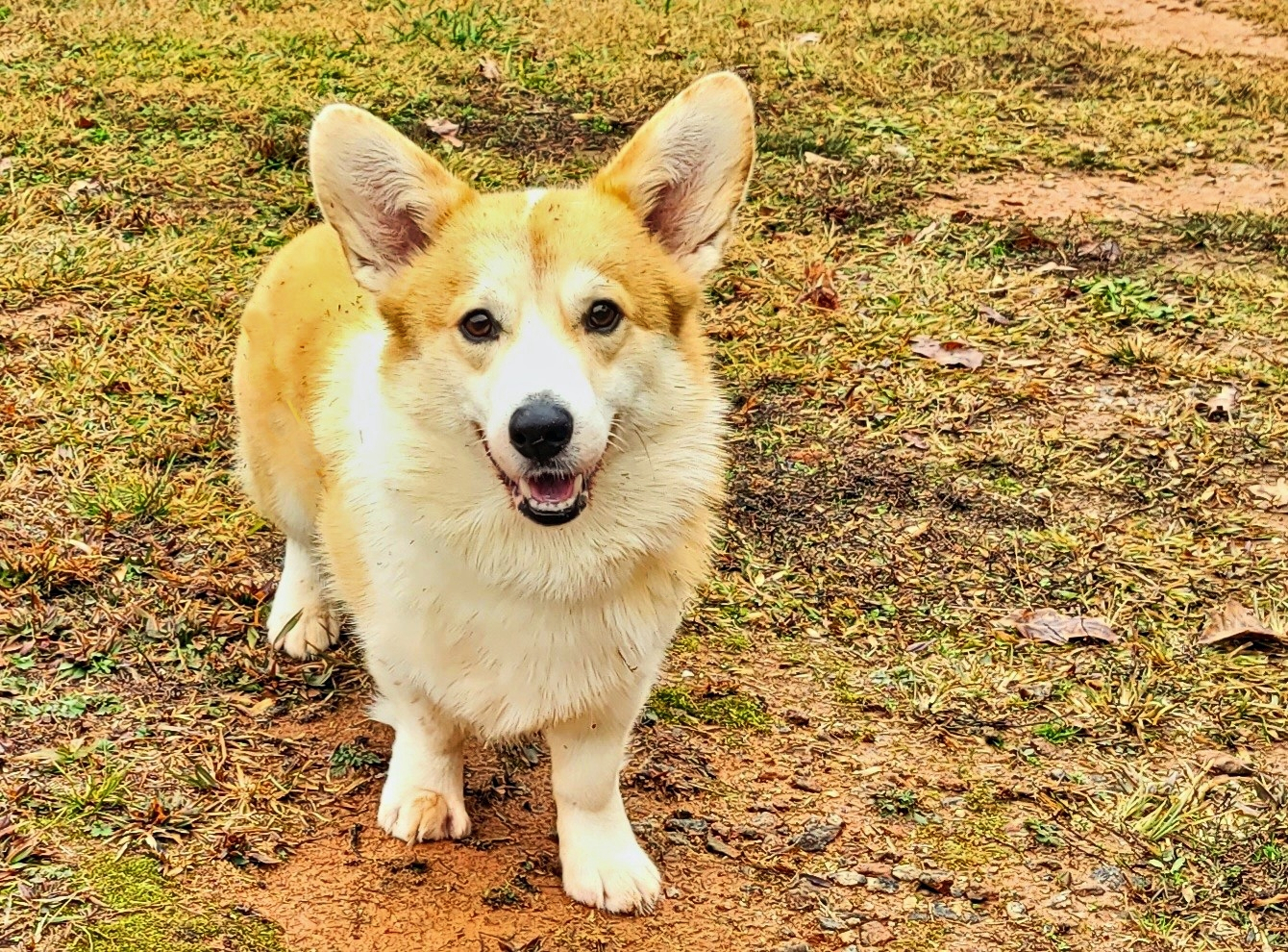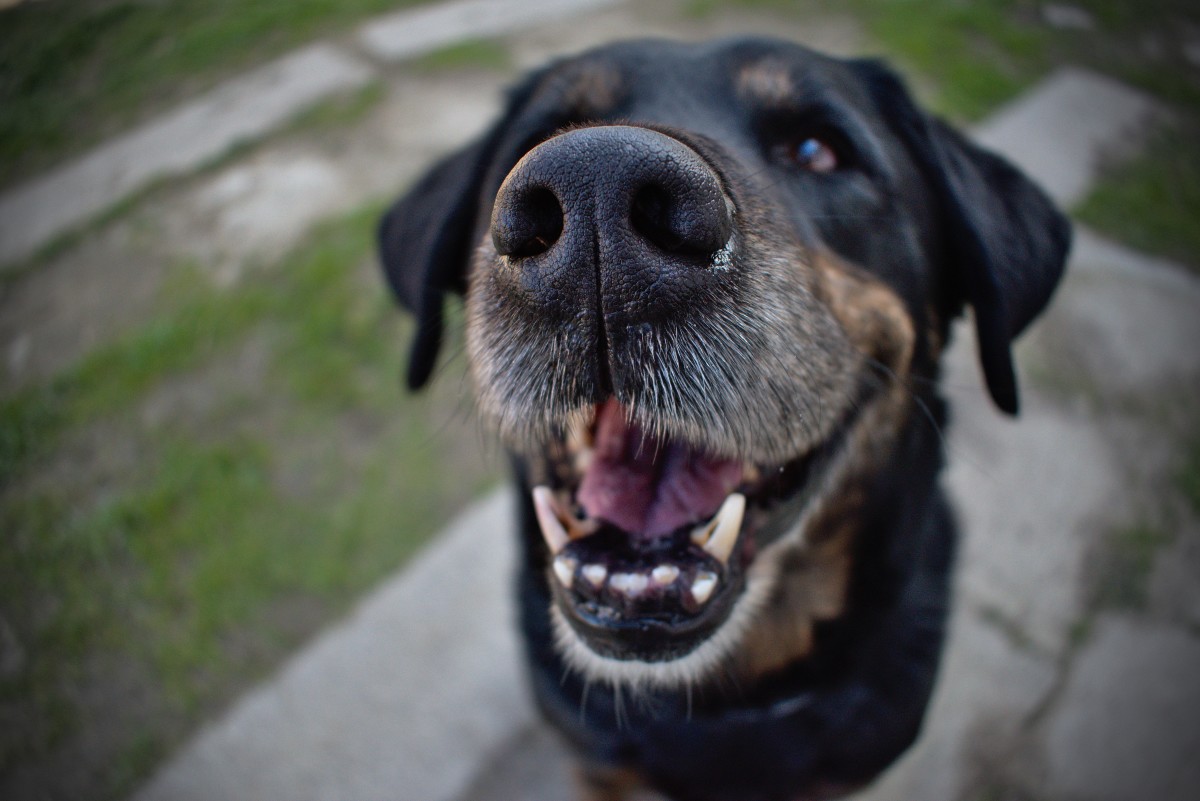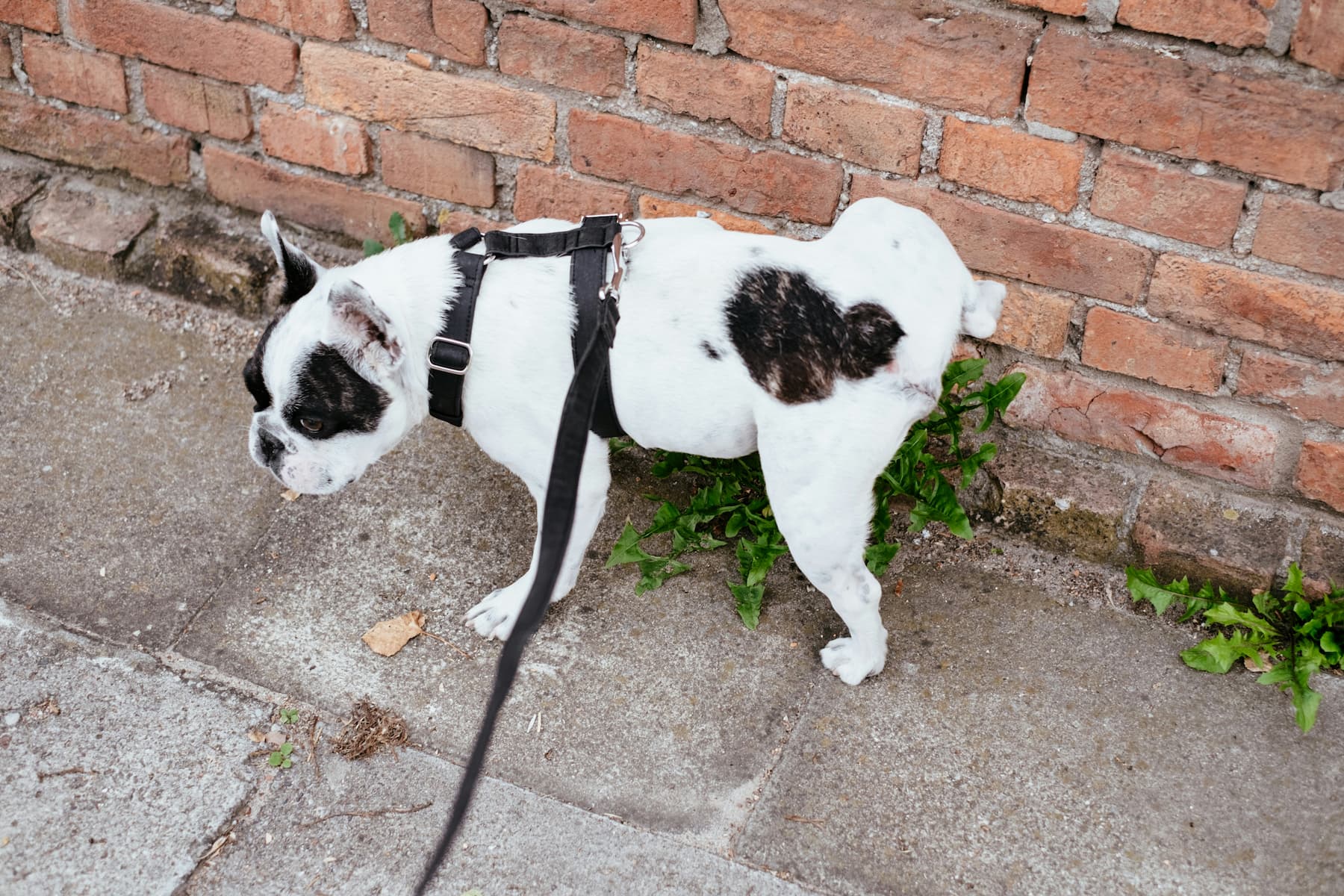Is a Pembroke Welsh Corgi Right for You?
Pembroke Welsh Corgis are a happy, funny dog breed, known for their playful personalities, intelligence, and loyalty. Originating from Pembroke Shire, Wales, these pint-sized herding dogs have a rich history, steeped in folklore and legend, as the “steeds” of the Welsh fairies. They are among the top 50 most popular breeds for family pets here in the USA, and are nationally beloved in the UK. If you’re considering adding a Pembroke Welsh Corgi puppy to your family, read on to learn all about this breed, from breeders and trainers who specialize in this storied breed. Discover, with the help of breed experts, if Pembroke Welsh Corgi puppies have the right temperament for your family pack’s lifestyle!
What is the Pembroke Welsh Corgi Temperament Like?
Pembroke Welsh Corgis are known for their lighthearted and playful personalities. They thrive around people and other animals, making them excellent companions for families. These intelligent dogs are very easy to train and can learn a wide variety of commands.
They Make Good Therapy Dogs!
They are often used as therapy dogs due to their affectionate and loyal nature. Their eagerness to please, as well as their ability to easily adjust to new environments makes them terrific therapy dogs. While they can’t leap up on beds for the bedbound patient, a little set of doggy stairs set by the bed will remedy that problem.
How Smart are Pembroke Welsh Corgi Puppies?
They are scary smart! PWCs can be smarter than their people much of the time. In fact, you can teach them the wrong thing without even realizing you are teaching them. Corgis are very perceptive and take cues from you all the time, without you realizing it. These merry dogs are happy to watch and learn from you all day long. As a matter of fact, in The Intelligence of Dogs, Stanley Coren ranks the Pembroke Welsh Corgi as the 11th most intelligent dog breed.
Corgis are highly intelligent and quick learners. Like all dogs, they enjoy mental stimulation, and these guys really excel in activities such as obedience training, agility trialing, and herding training.
Like many of the Pastoral breeds, high IQ and a strong desire to please makes them terrific AKC sport dogs, for casual backyard training, as well as competitive dog sports. In spite of their small stature, they excel in agility; these muscular little dogs were built for endurance and have no problem completing multiple agility courses and AKC herding courses.
Training Corgi Tips
- Like many of the highly intelligent herding breeds, PWCs do not benefit from endless repetitions of a trick or skill. If they do it right a couple of times, you’d better quit and move on to another training exercise, or they will think they are getting wrong and will try something else.
- Just work for 5 minutes on each activity while mixing training up. 20- 60 minute training sessions are good, as long as you vary the exercises. For example, we would not do an outrun 15 times in a row – you’ve got to mix it up!
- They are extremely food motivated, so positive training with tasty rewards will quickly earn the behavior you seek.
Are Corgis Stubborn?
That depends on your perspective! Corgis can be opinionated and independent thinkers; they may pause to consider the wisdom of the command before complying. As independent thinkers, they tend to look for the novel and the fun. When they know when it’s time to go out to the backyard, but that’s not what they want to do at the time, they might just look for something else to do.
Corgis like to make “stuff” happen. For instance in herding, they might like to bust up the sheep, and then bring them back together. They might be thinking, “Let’s makes something happen, so I have something to fix!” With that in mind, they can be a little mischievous. Of course, there is a huge variety in personalities: some are busy, some are not, some want to play with you, while others prefer to play with other dogs, and then some are couch potatoes.
Are Males and Females Different?
Male Pembroke Welsh Corgis want to please more than the females do. Females are more into what they want to do, but of course it depends on the individual. On a scale of biddability, males score a 7/10 and females tend to score (3/10) depending on the female, their mood in the moment and the task at hand. Keep in mind, this is not a breed that blindly accepts what you want them to do. If they have doubts, they will think about it.

Are Pembroke Welsh Corgis High Maintenance?
Relatively speaking, the Pembroke Corgi is not a high maintenance breed. Their coat and exercise requirements are only slightly above average. Reasonable amounts of exercise will keep them happy.
Grooming Requirements
Grooming is also essential due to their double coat, which sheds continuously. In fact, they shed a lot, a lot! However, their coats are easy to maintain. To keep down on the shedding, just have a weekly routine, with a pin brush and a comb: brush once or twice a week and bathe once a month. They shed more heavily twice a year, requiring more frequent brushing during these periods. Corgis tend to shed dirt. As mud dries, it falls off where they were sitting or sleeping. Happily, Corgis are not smelly dogs, but be prepared to deal with the hair shedding.
Exercise Requirements
While Pembroke Welsh Corgis are not excessively high maintenance, they do have specific needs. They require regular exercise to keep their bodies and minds healthy. For Pembroke Welsh Corgi puppies, a 20-30 minute walk twice a day will do the trick. For adults one hour of walking mixed up with some time playing fetch will go a long way to satisfying their physical requirements. Corgis adapt well to apartment living, as long as they get appropriate exercise time.
It’s important to keep this breed trim, and avoid allowing them to become overweight or obese. Their long backs will suffer more than most breeds with added weight at the girth.
Mental Stimulation
Like most dogs, a Corgi that is left to his own devices will become bored and possibly destructive. Teaching tug, fetch and obedience tricks keeps them mentally engaged throughout the day. Puzzle toys filled with treats are a fun activities for them as is a Kong toy filled with frozen peanut butter to keep them occupied for as much as an hour. This is a breed that likes to be included in family activities, so allowing them to join in whenever possible, will keep them mentally fulfilled.
Are Pembroke Welsh Corgis Affectionate?
Yes, Pembroke Welsh Corgis are very affectionate dogs. They form strong bonds with their owners and enjoy being part of the family. They are loyal and loving, always happy to greet their family members with enthusiasm.
What Are Typical Pembroke Welsh Corgi Traits?
The Pembroke is a funny dog! They have a sense of humor, a sense of adventure and are generally very eager dogs. Typical traits of Pembroke Welsh Corgis include:
Physical Traits:
- Their short legs, the word “corgi” means dwarf dog.
- Foxy shaped face.
- Docked Tail.
- Prick ears.
- Expression is bold, kindly and interested.
- Dark brown eyes.
Personality Traits:
- Their strong herding instinct, which can sometimes lead them to nip at people’s heels.
- They tend to control your movement with their bodies and can cut you off.
- They can be vocal dogs, often barking to alert their owners of visitors or unusual activities. A single dog won’t be so yappy, but they tend to feed off of each other and can be very yappy in a pack.
- Energetic!
- Happy!
- Very food motivated.
Are Pembroke Welsh Corgis Good With Children?
Pembroke Welsh Corgis can be good with children, especially with older kids, who understand how to interact with dogs. Like many of the herding breeds, Corgis can be control freaks. Wild or chaotic behavior invites them to step in and seek to settle and organize the chaos. This can lead to misplaced herding behavior in the form of nips (gripping) at children’s heels, which can be especially problematic at younger kids parties. Early socialization and training can help manage this behavior. Crating the puppy or dog when you expect a chaotic get-together is also advised.
Do Pembroke Welsh Corgis Bark a Lot?
Pembroke Welsh Corgis are vocal dogs and can bark a lot. In fact, they often bark while moving livestock. They can use barking to communicate or express boredom, anxiety, or excitement. Proper training and providing enough mental and physical stimulation can help manage excessive barking.
Are Pembroke Welsh Corgis Friendly to Strangers?
Pembroke Welsh Corgis are generally friendly, many of them would walk right out the door with a stranger. They are good watch dogs, and will alert you to anything new or unfamiliar people. But they are not guard dogs, and they won’t protect you from a stranger.
Are Pembroke Welsh Corgis Good With Other Dogs?
Pembroke Welsh Corgis usually get along well with other dogs, especially if they have been socialized from a young age. Having said that, they can be “scrappy” with other dogs. Additionally, some poorly bred Corgis can be aggressive by nature. All of them can learn defensive behavior quickly. While the well bred Corgi may not be the instigator, and is unlikely to start something with other dogs, be aware that if something does get started, they intend to finish it.
With that in mind, the right kind of socialization at an early age is important. Be sure to carefully expose Pembroke Welsh Corgi puppies to appropriately, well-socialized dogs. Avoid adults that might frighten them or be aggressive to them in their formative months.
Are Pembroke Welsh Corgis Good With Cats?
Generally speaking, Corgis are good with cats, especially when raised with them. Their herding instincts may cause them to chase other small animals, but training can help curb this behavior.
Do Pembroke Welsh Corgis Have Behavior Issues?
Like all breeds, Pembroke Welsh Corgis can have behavior issues such as excessive barking, misplaced herding instincts, separation anxiety, and occasional stubbornness. These issues can be managed with consistent training, positive reinforcement, and providing enough physical and mental stimulation.
The Difference Between Pembroke and Cardigan Corgis
Pembroke Welsh Corgis and Cardigan Welsh Corgis are often confused, but have distinct differences. The most noticeable difference is their tails: Pembrokes have docked tails, while Cardigans have long tails. Cardigans are also slightly larger and heavier boned than Pembrokes, and Cardigan ears are larger and lower set on the head. Temperament wise, Cardigans are more reserved and wary of strangers, although they are very affectionate, fun dogs with their people.
Cardigan Coat Colors
Cardigan Welsh Corgi breed standards allow for them to have brindle, as well as merle coats colors. All shades of red are allowed, from cinnamon to burgundy, and white spots are liberally allowed, although white should not predominate.

Pembroke Welsh Corgi Breed Health
Pembroke Welsh Corgis are generally a healthy and sturdy breed, but can be prone to a couple of health conditions like hip dysplasia and degenerative myelopathy. It’s important to buy from a reputable breeder who provides health clearances for the puppy’s parents. PWCs are not prone to PRA, and do not have many eye issues.
Keep in mind, their long backs require judicious consideration when contemplating certain sports, as well as how they are lifted or carried. Agility can be hard on their backs, especially through the weave poles. In training and trialing take those a little easier and take care with early training on the A-Frame. Dock diving can be rough on them too, when you don’t have long legs to break the fall! They enjoy these sports and excel at them, however, as the adult in the room, you should just keep an eye towards not pushing them to over-do it.
What is the Pembroke Welsh Corgi Lifespan?
The average lifespan of a Pembroke Welsh Corgi is between 12 to 15 years. Providing a balanced diet, regular exercise, and routine veterinary care help ensure a long and healthy life.
How Big Do Pembroke Welsh Corgis Get?
Pembroke Welsh Corgis typically stand between 10 to 12 inches tall at the shoulder and weigh up to 30 pounds. Their small stature and sturdy build make them suitable for both country and city living.
Pembroke Welsh Corgi Coats
Pembroke Welsh Corgis have a double coat consisting of a dense undercoat and a longer coarse topcoat. Their coat is weather-resistant and comes in various colors including red, sable, fawn, and tri-colored, often with white markings. The bodies should not be white nor have white spots on the back. Blacks should be true black and not a dilute, as in blue or merle.
Pembroke Welsh Corgis can have a variety of coat colors, including:
- Red
- Sable
- Black
- Tri-colored
- Fawn
The Fairy Saddle
Part of the breed’s lore as the steeds of the Welsh fairies involves the “fairy saddle.” Their coats vary in length, with the hair on the chest, neck and shoulder (the ruff) being slightly longer. That longer hair on the shoulders is considered the fairy saddle.
Sports For Pembroke Welsh Corgis
Pembroke Welsh Corgis excel in various dog sports. They rate highly in interactive activities with their owners. A very versatile breed, their intelligence and energy make them well-suited for these AKC sports:
- Agility (9/10)
- Barnhunt (9/10)
- Scent work (9/10)
- Rally (9/10)
- Fast Cat ((9/10)
- Herding (10/10)
- Obedience (7/10)
Where to Find Reputable Pembroke Welsh Corgi Breeders
Finding a reputable breeder is crucial when looking for a Pembroke Welsh Corgi. Reputable breeders will provide health clearances, socialize their puppies, and offer lifetime support. Avoid backyard breeders who prioritize profit over the dog’s health and well-being or those who breed for odd colors.
Pembroke Welsh Corgi Resources
There are many resources available for Pembroke Welsh Corgi owners. Start with the PWCCA website (Pembroke Welsh Corgi Club of America) website. From there you will find a breeder referral page as well as affiliate clubs (regional clubs to find someone near you). While the AKC parent club offers solid referral sources the AKC marketplace website is not recommended for finding reputable Corgi breeders. These days more good breeders do not have a website than those that do. So rely on these breeder resources to find someone near you:
- Breed club (Pembroke Welsh Corgi Club of America)
- Visit dog shows in your area to meet local breeders (www.Infodog.com allows you to easily search by state for upcoming events).
- Local Corgi rescue organizations
These resources can provide valuable information on training, health, and finding a reputable breeder.
Final Thoughts
Pembroke Welsh Corgis are cheerful, funny, busy, intelligent, and affectionate dogs that make excellent companions for the right family. They require moderate, regular exercise, grooming, and training to thrive. Understanding their unique traits and needs will help you decide if a Pembroke Welsh Corgi is the right fit for your home. If you’re prepared to meet their needs, you’ll be rewarded with a loyal and loving companion.
Contributors to This Article
Amy Caple

We have had the pleasure of sitting down with Amy Caple and learning more about Pembroke Welsh Corgis from her many years of experience with the breed!
Amy Caple, a Pembroke Welsh Corgi breed specialist, has been breeding, training and showing PWCs for over 20 years. Amy grew up with Dobermans, and has enjoyed sharing her life with other herding breeds including a border collie, “Wizard,” an Australian cattle dog, as well as an Australian Shepherd. In time and with experience, the Pembrokes eventually stole her heart.
Amy has enjoyed marvelous success in the conformation ring and herding arena with her “Sassapine” Pembroke Welsh Corgis with multiple Best in Specialty Show, Best in Show, Reserve Best in Show and many Group wins and placements over the years. She has titled a number of her Corgis in the AKC herding arena, and is an AKC conformation judge, currently specializing in the Herding Group.




